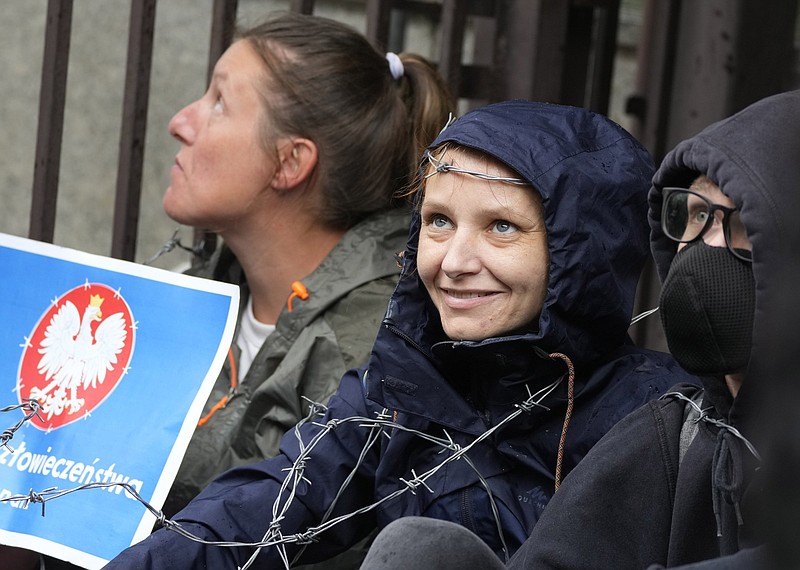WARSAW, Poland -- Poland plans to build a fence along its border with Belarus and deploy more soldiers there to stop migrants seeking to enter the European Union nation.
The government Monday also offered to send humanitarian aid to a migrant group stuck at the border for more than two weeks.
[Video not showing up above? Click here to watch » https://www.youtube.com/watch?v=4UOjMKA0KUg]
Poland and the three Baltic states -- Latvia, Lithuania and Estonia -- accuse Belarusian President Alexander Lukashenko of sending migrants across their borders, which also form part of the EU's eastern border, in what they call a "hybrid war." The migrants are mostly from Afghanistan and Iraq.
All four EU nations believe the surge in migrants is Minsk's revenge for the EU's sanctions against the autocratic regime in Belarus.
"Using immigrants to destabilize neighboring countries constitutes a clear breach of the international law and qualifies as a hybrid attack against ... Latvia, Lithuania, Poland and thus against the entire European Union," they said in a statement Monday.
From Geneva, the U.N. Refugee Agency's spokesperson, Shabia Mantoo, said the organization has been closely following the situation.
"We have been very concerned by developments at the borders resulting in people being stranded for days," Mantoo said.
The Polish government said last week that 2,100 migrants had tried to enter Poland illegally from Belarus so far in August. Almost 800 of them got in and have been placed in state-run centers.
In response to the migrants' arrival, Poland said it had deployed more than 900 soldiers to the border with Belarus and was reinforcing the border with 93 miles of barbed wire. On Monday, Defense Minister Mariusz Blaszczak said more soldiers would be sent and an 8-foot-tall fence would be erected on the border.
Blaszczak said the fence would be modeled on the one Hungary erected against migrants years ago on its border with Serbia, which is reinforced with coils of razor wire.
"We are dealing with an attack on Poland. It is an attempt to trigger a migration crisis," he said at a news conference at the border.
Noting that Lukashenko's regime has ties to the Kremlin, Blaszczak said: "We will not allow the creation of a route for the transfer of migrants via Poland to the European Union."
In Warsaw, about two dozen protesters chained themselves to a fence in front of the Border Guards headquarters and put barbed wire on its gates to protest the behavior of Polish authorities along the border.
Deputy Foreign Minister Pawel Jablonski said the situation was testing how the country would react to more serious acts of hybrid warfare.
"The statements and behavior of a significant number of Polish politicians, journalists and NGO [nongovernmental organization] activists show that a scenario in which a foreign country carrying out such an attack against Poland will receive support from allies in our country is very real," Jablonski said on Twitter.
He said authorities should use this situation to "better prepare for similar threatening actions in the future."
Lithuania has seen similar tensions triggered by a surge of migrants on its border.
"Lukashenko isn't only using migrants as a hybrid weapon to take revenge against the West, he is trying to provoke a division and an internal political crisis in Poland and Lithuania," said independent Belarusian political analyst Valery Karbalevich. "Lukashenko is playing a dangerous game, trying to test the limits of the West's patience."
Information for this article was contributed by Jamey Keaten and Yuras Karmanau of The Associated Press.
